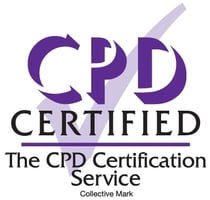
Safeguarding the Vulnerable
Certain individuals may be unable to care for or protect themselves due to a mental illness or disability, age or other factors. We all owe a duty to safeguard such vulnerable people.
Safeguarding refers to promoting health, wellbeing and the human rights of anyone who is considered vulnerable.
Our Safeguarding Vulnerable Groups Training Course will help your employees to understand which individuals may be vulnerable and what extra steps they should take to safeguard them.
- 45 Minutes
- All staff
- Based on UK legislation, but suitable for global audiences upon the removal of UK-specific references and translation as necessary.
- Compliance Essentials Library

Learning objectives
- Recognise what we mean by the term 'vulnerable'
- Distinguish between different types of abuse
- Identify signs and indicators of abuse
- Take appropriate action to safeguard vulnerable people
- Deal effectively with disclosures of abuse
- Comply with legislation
What can you expect your employees to learn?
Introduction
Scenarios
- Scenario 1: Sara's new friend
- Scenario 2: How does Lei do it?
- Scenario 3: Arthur's poor treatment
Who is vulnerable?
What is safeguarding?
- Who is responsible for safeguarding vulnerable people?
- Types of abuse
Who could be an abuser?
- Examples: What can go wrong?
What are the signs?
- You decide: Spotting the signs
- An increased risk?
- Exercise: Identifying the risk factors
Measures to safeguard vulnerable people
- Scenario: Safeguarding Lei's vulnerable client
- Don't be a stickler
- Scenario: Safeguarding the vulnerable
A proactive approach
- You decide: Your duty of confidentiality
- You make the call: Gauging the level of risk
- Dealing with suspected & actual disclosures of abuse
- Taking action to safeguard vulnerable people
- Scenario: Naira's husband
- Scenario: Handling high-risk situations
- Scenario: Making the right response
- Scenario: Safeguarding the customer
- Handling the situation tactfully
Disclosure & Barring Service (DBS)
-
DBS key points
Legal issues & safeguarding
- You decide: Complying with the law
Scenarios Revisited
- Chloe's boyfriend
- Lei revisited
- Arthur revisited
Summary
Affirmation
Assessment
Hear from our learners
Excellent easy-to-use LMS which Skillcast have specifically tailored to our needs to also host a Global Policy Portal and global staff surveys, alongside providing live MI reporting.
Being able to personalise our own training has been a game-changer! Excellent training was provided on how to use the CMS and the support team have been so helpful, patient and quick to reply when I've got stuck.
We have been enjoying e-learning with Skillcast for 10 years now. Their customer service is always at the highest level, always very attentive, responsive, and polite. Highly recommend to any company who is looking for a high quality e-learning and customer service (they have both in high standards).
We started using Skillcast for our employee's compliance training a few months ago and the experience has been excellent. Skillcast was very efficient in the set up process they then helped support us with rolling out our staff training in a seamless way. The course content is highly detailed and professionally delivered. Overall, I would highly recommend Skillcast as your LMS training provider.
Excellent courses with a brilliant support team
We've been using Skillcast for approx. 1.5 years and have been very happy with the service received and the courses offered. The customer service from the support team is excellent, they always respond quickly and are very helpful. The courses offered cover a broad range and the FCA courses were particularly useful to our business.
Incredibly helpful support team, who work with you to provide tailored advice and practical assistance. You are supported every step of the way. Would highly recommend.
I cannot overstate how happy with are with Skillcast. They are prompt, attentive, patient and always so good humoured. The teams work seamlessly, and there is always someone to cover in the absence of a team member. I am always impressed and very happy to work with the team.
A great LMS with a dedicated and knowledgeable team behind it. The LMS has a number of features that are gradually shared and which keeps on being developed.
Every member of the team I have had dealings with have been quick, efficient and very accommodating. No task or query is to big for them, and always a quick and prompt response. Pleasure to work with
We use Skillcast for our corporate training and it's a good LMS platform with a great variety of courses available. The platform is user-friendly and easy to navigate, and courses are up to date with legislation.
Skillcast is easy to set up and use. You can design the colours of the platform to fit you company branding. Support team are very helpful and nothing is too much trouble.
Excellent systems, user-friendly and easy to use.
Skillcast is a great platform to use for Compliance e-learning. The staff found the courses informative and engaging. There is a wide range of compliance related topics on the essentials library. The LMS is easy to use, and provides reports to track staff progress, which is a helpful feature.
The range of course libraries are comprehensive and the ability to select from multiple modules was important to us. The Global Library provides courses in multiple languages. We were also impressed with the microlearning modules. The platform is a great option for us and for our business requirements. We can also trust in Skillcast to review and update the modules so that they remain relevant and incorporate the latest developments in regulation.
Excellent services provided by the Skillcast team and the Skillcast system is simple to use.
The service provided for our company is excellent. The platform provides essential training for our business. When liaising with Skillcast in preparation for training delivery their customer service is excellent and we would definitely recommend.
Skillcast has truly transformed our approach to compliance training and tracking at Imagination. Not only does it seamlessly manage our global company's compliance requirements, but it also enhances employee engagement through its user-friendly interface and interactive content. What sets Skillcast apart is not just the platform itself, but also their exceptional customer service team. They are responsive, knowledgeable, and dedicated to providing tailored solutions to our unique needs. It's been instrumental in streamlining our compliance processes and fostering a culture of proactive risk management, growth & development."
They listened to our needs and helped tailor the existing course to our organisation with ease, ensuring accessibility requirements were maintained and the training was engaging and presentable. All their help was been very appreciated and I couldn't have asked them to do any more for us. I would recommend Skillcast to anyone looking to bring in new training modules to their organisation.
Skillcast provide an A-star product with excellent customer service support.
Start your compliance e-learning journey with a free trial
Our no-obligation free trial gives you access to our libraries and compliance platform.
Ready to start your free trial? Complete the form, and a member of the Skillcast team will be in touch with further details.
Your questions, answered
ESG
Common FAQs
How can I log breaches in our Environmental Procedures?
How can employees report ESG-related concerns anonymously?
How can I ensure employees are aware of and comply with our Environmental Procedures?
Are Skillcast courses SCORM-compliant?
What other tools are needed beyond training?
Is our training content still compliant with the latest legislation?
- You can check the latest course content updates in our library updates page: https://www.skillcast.com/compliance-course-library-updates
- For major legislative changes, we:
- Send you email alerts to ensure you are notified
- Offer you a free trial of newly created or updated content
- Host webinars with compliance experts to explain the changes and how our training supports your ongoing compliance
Can you translate our content into other languages?
What file types are supported by the Skillcast system?
Features |
Supported file types and details |
|
File Exchange |
File types: PDF, Excel spreadsheets, Word documents, SCORM and xAPI files, and compressed zip files. Max file size: Default is 1GB, can be increased to a max of 2GB |
|
SCORM files |
Versions: SCORM 1.2, SCORM 1.2 for Moodle, SCORM 2004 2nd, 3rd and 4th Edition. Max file size: 1024MB |
|
xAPI file |
Max file size: 2GB |
|
Videos |
File types: MP4 or MOV. Videos must be optimised, with a max file size of 100MB. If the file is bigger, our Design Team can help |
|
Images |
File types: jpg, png and gif. The file size should ideally be 100KB, but it can be up to 250KB |
|
CPD evidence |
File types: Word, PDF, Excel and CSV. File size: the limit should be whatever the portal config option is set to. Servers are set to max 2GB |
|
Policy documents |
PDF or Word File size: the limit should be whatever the portal config option is set to. Servers are set to max 2GB |
|
Offline activities evidence |
File types: PDF, DOC, DOCX, XLS, XLSX, CSV, PNG, GIF, JPEG, JPG, PPTX and MSG. File size: the limit should be whatever the portal config option is set to. Servers are set to max 2GB |
|
Client logo files |
File types provided by client: EPS, PDF, AI and SVG |
|
Registers |
PDF, DOC, DOCX, XLS, XLSX, CSV, PPT, PPTX, POT, PPA, PPS, JPG, JPEG, PJEPG, PNG, BMP, GIF, MP4, MOV, WMV, CPTX, CP, TXT, ZIP and MSG files |
|
Declarations |
JPG, JPEG, PNG, GIF, XLS and XLSX files |
The rising importance of ESG
Understanding Modern Slavery
Modern slavery remains a persistent, inhumane practice affecting millions through forced labour, trafficking and exploitation.
Modern Slavery
Modern slavery is a serious crime with harsh penalties.
Understanding Conflicts of Interest
A conflict of interest is where competing interests interfere with the exercising of judgement in a relationship.
Forced Labour Indicators
Forced labour is a serious violation of human rights, often hidden within workplaces and supply chains.
Interacting on Social Media
Social media offers great opportunities for communication, but it also presents risks to data protection, security and reputation.
Understanding ESG
Companies are increasingly expected to integrate environmental, social and governance principles into their operations to attract investors.
Identifying Who is Vulnerable
Vulnerable individuals are those who face heightened risks of harm, abuse, neglect or exploitation due to various circumstances.
Screening Employees in Safeguarding Roles
The Safeguarding Vulnerable Groups Act protects children and vulnerable adults from harm by preventing unsuitable individuals from working with them.
Code of Conduct
A company's Code of Conduct embodies the standards of ethical conduct expected of employees.
Conflicts of Interest
Many conflicts of interest can affect your company, from gifts and hospitality to self-dealing and external work.
Modern Slavery
Modern slavery is a serious crime with harsh penalties.
